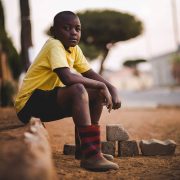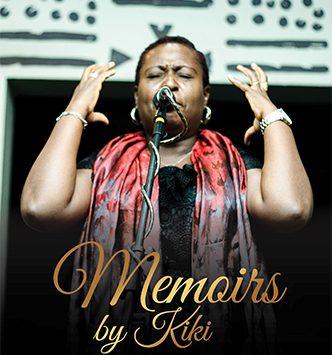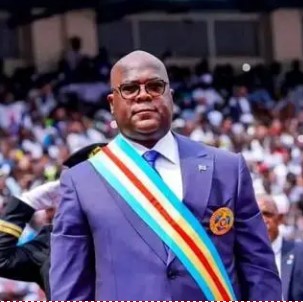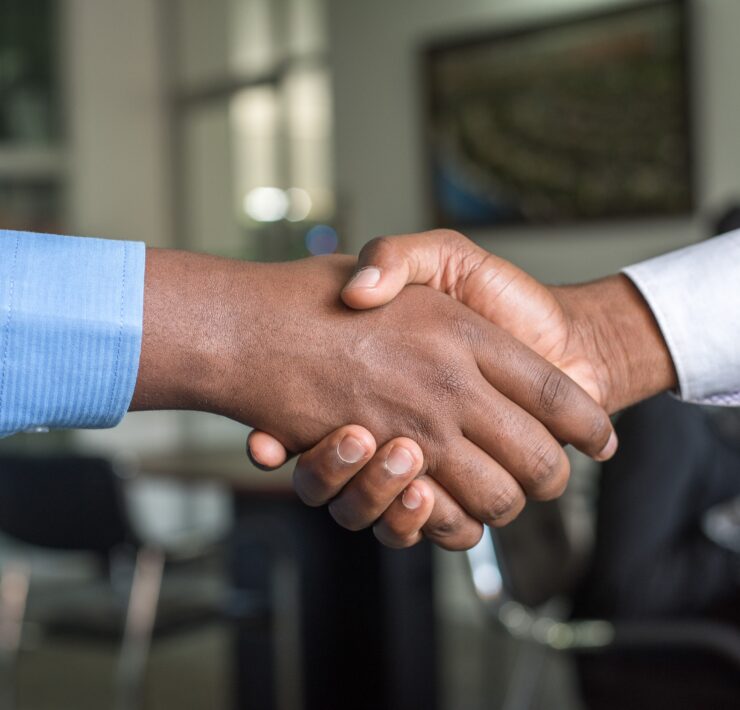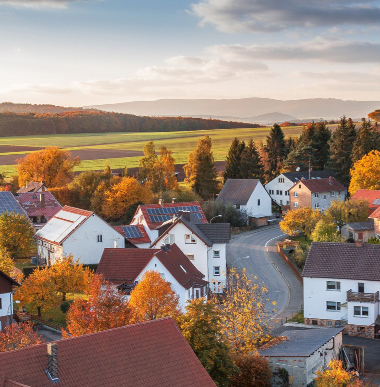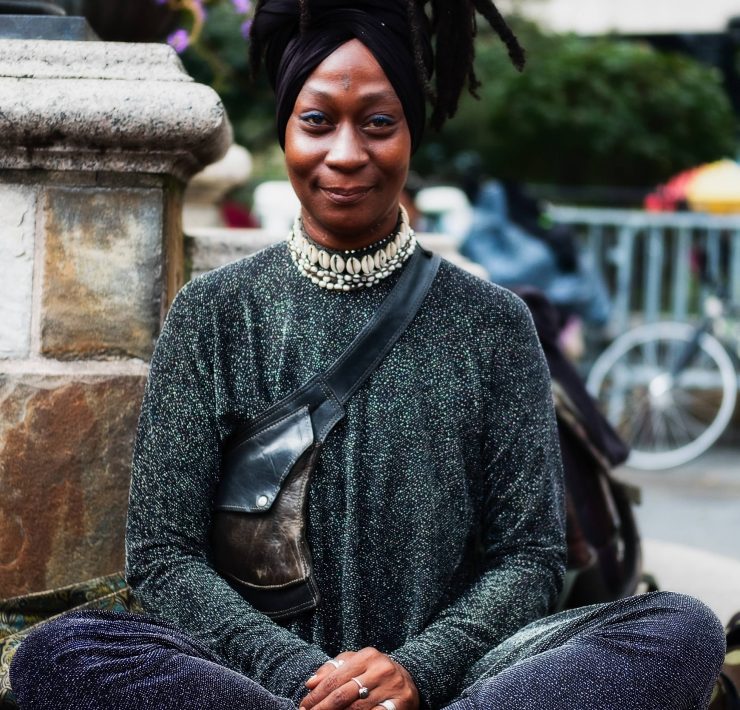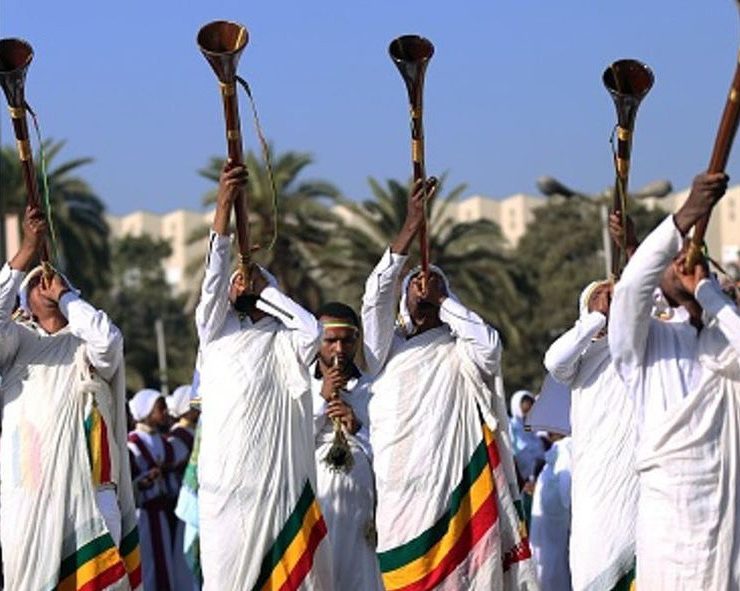The State of Afrika Post-Independence
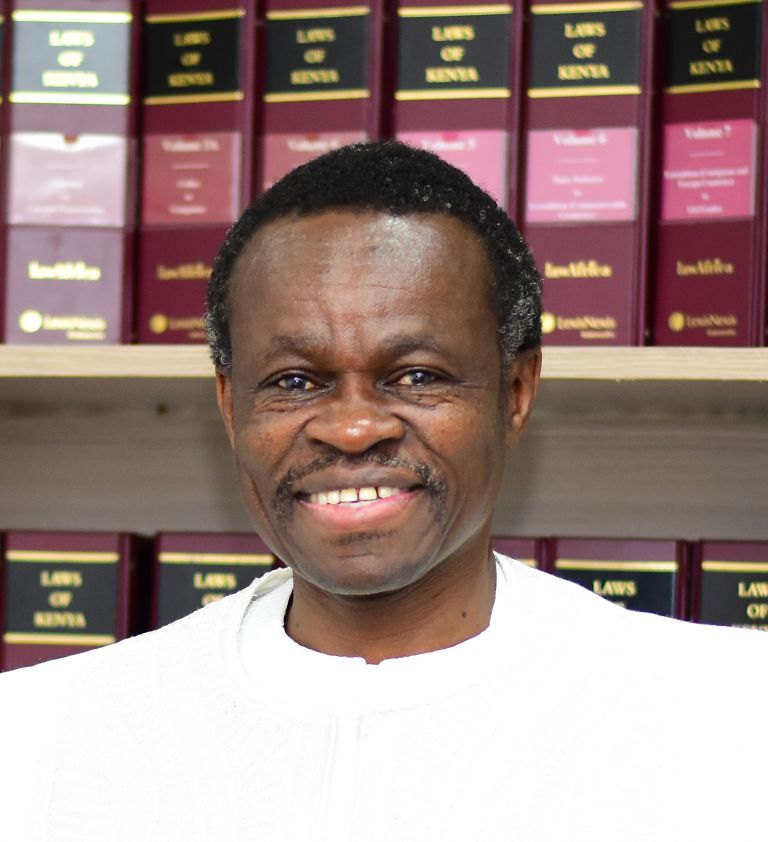
Chioma Phillips is the Editor of Msingi Afrika Magazine and…
A Conversation with Prof. PLO Lumumba
Below is an excerpt of an illuminating conversation with Prof. PLO Lumumba on the state of Afrika post-independence. You can watch the full-length interview here:
Can you tell us what your perspective is of the state of Afrika’ in 2020 and why you believe the continent is the way that it is?
Let me start by saying that this is a continent that has been abused throughout history and that history must never be lost. This is a continent that has been abused through slavery. This is a continent that has been abused through colonization. This is a continent that continues to be abused through the neocolonial project. This is a continent that has been abused by her own leaders, who served as puppets of the imperial powers. Yet, this is a continent that has always had promise. I’ve always said that throughout the ages, there is not a single continent that has attracted the attention of the world, other than the continent of Afrika. Even if you go to the old Greeks, to the Assyrians and other civilizations, there was a sense in which they found their inspiration in the continent of Afrika. This is a continent that attracted the Europeans. This is a continent that attracted the Asians. This is the cradle of mankind. When the Europeans were still living in caves, the Dogon were already engaged in superior astronomy. The Benin Empire was walled, the Mwenemutapa Empire was alive and well.
But fast-forward, the entire struggle for independence in the 1950s, which was the height of post World War II was really heraldic, heraldic in the sense that it told the Afrikans that there was need to regain your esteem to run your affairs and there was no more eloquent voice than the voice of Kwame Nkrumah of Ghana, when his own country regained her independence in 1957, that independence of Ghana meant nothing if the rest of Afrika was not free. When they were meeting on May, the 24th and 25th of May in Addis Ababa, Ethiopia in 1963, there were 32 Heads of States and Government, Osagyefo when he stood to speak with a sense of urgency and purpose, he urged those present that they must come out of the meeting with one army, one currency, one government. But they did not listen to him. They formed a weak organization called the Organisation of African Unity.
if you pay school fees through corruption, if the car you drive is through corruption, if your entire lifestyle is underwritten by corruption, you can only pay lip service to corruption, because you cannot lead by example and you cannot have your words wedded to your deeds
Prof PLO Lumumba
Today, when we talk about Afrikan unity and the success of the OAU and the African Union, we remember Nkrumah nostalgically and in 1997, the 6th of March, to be exact, Mwalimu Kambarage Nyerere who in 1963 did not quite support Osagyefo about the immediacy of the Afrikan union, speaking in Accra, Ghana on the 40th anniversary of Ghanaian independence said, “Nkrumah was right. We were wrong. We ought to have united then. Because what has happened now is that individual countries have now gotten used to their so-called Tanzanianness, Ghanaianness, Kenyanness, Ugandanness, and the trappings of power now stand in the way of their vision and passion for Afrika.” But, he reminded the audience that it’s not too late. He said that what gladdens him is that out there Tanzanianness, Ugandanness, Ghanaianness, Nigerianness, means nothing. “When they see us they only see us as Afrikans and therefore we ought to unite.”
Afrika now finds herself punching below her weight. She punches below her weight economically, she punches below her weight socially, she punches below her weight politically, she is beholden to the erstwhile colonizers and for that reason, her sons and daughters are always walking around the world through their leaders with a cap in hand, begging the world and being dictated to. So, if I was asked to write a letter to the great Afrikans of old who had gone and I were to write to Kwame Nkrumah, I were to write to Thomas Sankara, to Julius Nyerere, or Modibo Keita or Ahmed Sékou Touré of Guinea, I would tell them, “Comrades, all is not well, but we remain hopeful.”

In your view, where should Afrika be at 60? Most countries are now aged 60. Where should we be?
You know, that is a question that invites me to swim in the sea of speculation and in that sea, there are many sharks and piranhas, but I’ll swim nevertheless. I’ll swim because one can use comparative evidence to determine where we ought to have been if we had conducted ourselves differently. As we have this conversation, my mother continent is divided into 55-odd countries. These countries are the product of a European engagement in 1884 and 1885 in Berlin in Germany. And, as I was saying, we are 55-odd countries, artificially created, but we have made the best of it, to the best of our ability, not as well as we ought to have because we have remained susceptible to manipulation and exploitation. So that if you take a country like the Democratic Republic of Congo, which is larger than the entire Western Europe, you will discover that her resources are estimated to be in the neighborhood of 34 trillion US dollars, conservatively. And yet, as we speak now, it is one of the poorest nations on earth. You go to a country such as Niger, which produces uranium, that uranium is consumed by the French, the same in Mauritania, the same in Burkina Faso. You go to a little country like Belgium, and Belgium is a little country, which colonized the Democratic Republic of Congo. If you want to see how Congo should be, go to Belgium. Because 90% of the wealth that they have is Congolese. The same with France, if you took away the wealth that the French have taken from her former colonies in Afrika, France would become a third world country. And one could go on and on. Look at the resources, the natural resources, the Grand Inga Dam in the Democratic Republic of Congo can provide electricity for the entire continent of Afrika. The solar power that can be generated in Namibia and in Saharawi can also light the entire Afrika. Look at the rivers that we have, both navigable and non-navigable. Look at the parks, the savannah, the arable land that we can, Muammar al Gaddafi may have had his many problems, but he demonstrated to the world that you can green the desert. You can green the desert. Look at the power resources in the Grand Ethiopian Renaissance Dam, Afrika is now at the very best, our combined GDP could be in the neighborhood of 3-4 trillion, which is just about the GDP of Russia or Spain or Brazil. Yet, I believe, if we had marshaled and deployed our resources, both natural and human, we would be in the neighborhood of 20 trillion dollars, at the same level with the United States of America.
Am I being realistic? Yes, I am being realistic. Why? Look at countries without resources. Germany was bombed to the ground in 1945. Within a generation, Germany is probably the 4th largest economy in the world. They rebuilt their country. Look at Japan, the 3rd largest economy in the world, bombed to the ground, the only country ever to have been victimized by a nuclear device in Hiroshima and Nagasaki. They built themselves. Look at South Korea, involved in a fratricidal war with their cousins in North Korea. Look at where they are technologically and otherwise. Look at little Singapore. One can go on and on, but there is no wisdom in doing that. Wisdom only lies in the recognition that it is our disunity that undermines our abilities. Look at our Diaspora now. The Afrikan Diaspora is anything between 200 and 300 million. Their combined income is perhaps larger than the GDP of the continent of Afrika.
I want to conclude answering that question by telling you that there are possibilities, even in the midst of our apparent gloom, there is glimmer and this glimmer comes from Afrikan countries. We have lamented for so long, but we must now stop lamenting. We must lift ourselves by our bootstraps. We can and we must and we will.
One of the ideals you deal with in your mentorship programs is servant leadership. What is servant leadership and do you think this is the solution to the leadership problems we have in Afrika?
It can be said of many Afrikan countries the men and women we entrust with leadership, sooner rather than later, forget that they are servants. If you allow me to be a little melodramatic, that they are midwives and a midwife is neither the father, nor the mother, nor the child but his or her duty is to ensure that the child is safely delivered and that the mother is safe for further delivery and that the father is also joyous to participate in the creation of that which is delivered.
Many leaders forget that that is their role and when they are given the honor and privilege of serving, they think that they are demigods to be worshiped. In our own little country Kenya or any other country, when one is appointed in public office as a councilor or an MCA, suddenly he thinks he’s very important, he is a minister, he thinks he is very important he can’t even open the door of his car and if she is a lady she can’t even carry her handbag and the presidents when they are going to any place, they arrive with pomp and circumstance. What Nyerere used to call in Kiswahili, “Wanaanza kubeba mikia wa nyama.” (They start to animal tails) Fly whisks. And they arrive kwa mbwembwe na vingora (with showing off and sirens), in other words, they confuse themselves and I think that that is the problem and we too we who are led are also part of the problem. When people are elected into office we suddenly think that they are wise. We suddenly think that they have the monopoly of knowledge and wisdom. We suddenly think that they are infallible. We suddenly treat them as if they are demigods. And they begin to believe that they are infallible. They begin to believe that they are demigods. They begin to think that they cannot be contradicted. But there have been exemplary leaders in Afrika who have demonstrated that you can be a servant.
You know, Carter G. Woodson, that great American, writing in 1933 in his book ‘Mis-Education of the Negro’, says, and I’ll not quote verbatim, I’ll only quote in effect what he said, that a leader is a servant, but he stands out because he’s ready to go the extra mile. To receive insults and to accept them gracefully but always to do right for that which is the general good. It’s not because he is better than them but because he has been given the honor and privilege of service. That is what true leadership is all about. And I was citing Carter G. Woodson in order to introduce my favorite leaders in Afrika and how they have performed, and history has born them out. First in the pantheon, is Mwalimu Julius Kambarage Nyerere, this man, whom I had the honor and privilege of working with, in the 1990s, was humility personified. Whether you liked him or not, you cannot deny that. A patriot, a servant leader, who had no personal wealth. It is only when he died that a beautiful house was made for him in Butiama. Tell that to our leaders in Kenya who are engaged in theft on an industrial scale. Mwalimu Nyerere demonstrated that it can be done and you can see in Tanzania, even those who have succeeded him, whether it was Mzee Ali Hassan Mwinyi, or now the late Benjamin William Mkapa, or Jakaya Mrisho Kikwete or John Joseph Pombe Magufuli, you can see some humility.
So Afrika has had good leaders, these are servant leaders, men, and women who know that their greatest claim to fame is service. There they are, and I’ve only talked about the political angle. There are leaders in business, there are leaders in different sectors but I talk about politics because politics is overarching and politics informs and underpins all else.
I want to conclude answering that question by telling you that there are possibilities, even in the midst of our apparent gloom, there is glimmer and this glimmer comes from Afrikan countries. We have lamented for so long, but we must now stop lamenting. We must lift ourselves by our bootstraps. We can and we must and we will.
Prof PLO Lumumba
We have to also consider some of the other issues that you raised during our earlier conversation, where you expressed concern about the on-going, yet poorly covered conflicts in Afrika. Please tell us a little bit more about the current situation in the different parts of Afrika, what is causing them and what should the approach be if we are truly to silence the guns and bring an end to these conflicts as the AU is pushing for in the current thematic year?
Afrika now finds herself in a very interesting situation, we are at crossroads and the pandemic now christened Covid-19 has exacerbated the situation but in the recent past and that recent past must mean about the last 10 years, Afrika has been going through introspection on what she can and must do in order to realize her potential. We recognized that in order to achieve all these things, you need peace.
So, this year was declared as the Year of the Silencing of the Guns as a prerequisite to the creation of a conducive environment for socio-economic development and indeed it is this year that the Africa Continental Free Trade Area was also to kick in, in the month of July, headquartered as it is in Accra, Ghana, with my friend Wamkele Mene from South Afrika as its first leading official. But that has now been postponed because of Covid19, but contemporaneously with what we see now, it was recognized, and I’m repeating this that you needed to silence the guns. But as I look at Afrika now, the guns are not silenced and just give me a little latitude to take you around the continent.
Look at the entire Sahelian region and when I am talking about the Sahelian region I’m talking about Mauritania, I’m talking about Mali, I’m talking about Niger, I’m talking about Burkina Faso – the Northern Burkina Faso – and if you permit me I can even go up there to Libya which as you know, has become the Afghanistan of Afrika. If you go to Sudan in the Nuba Mountains in Darfur and in the Abyei area, there is once again an insurgency informed by the misconduct of the Khartoum government; I know Prime Minister Hamdok is trying but there is an insurgency there. You go to South Sudan there is a fragile peace. You go to Eritrea, it is locked up, nobody knows what is happening, you go to Ethiopia which is being led, in my view, reasonably well by Prime Minister Abiy, but you can see the Oromo insurgency is still alive and well. You go to Somalia; you still find that Somalia is divided into Puntland and Jubaland. You go to Mozambique there is an insurgency in Northern Mozambique which ought to receive the attention of the world. If you go to the Democratic Republic of Congo, Eastern part of Congo you know there are problems, you go to Southern Cameroon in Ambazonia, you know that there is a problem, in Guinea, there is a problem, in Mali, Central Afrikan Republic and it goes on and on.
So when you find yourselves in a situation such as this, it tells you that the environment in our continent is inimical to the things that we desire to do. If today, for example, you wanted to move from Addis Ababa in Ethiopia to Dakar in Senegal, by road or by rail, you can’t. Even when you start building, you’ll discover that it’s not just the terrain which is problematic, but the environment itself which is caused by these insurgency groups, many of them which are homegrown, but are also now being funded by gunrunners from different parts of the world, so conflict is a multi-billion dollar industry, in fact, trillion-dollar industry and there are those who would want to see Afrika degenerate deeper and deeper into the murk and mire of conflict.
Look at Nigeria, Northern Nigeria, what is happening with the Boko Haram and the Boko Haram has affected that entire region in Cameroon and in Chad and this cannot be good, because we are generating internally displaced persons and we are undermining agriculture and we are not only undermining agriculture we are undermining our ability to invent and innovate and to deploy resources into education, to deploy resources into health, to deploy resources into agriculture and to deploy resources in all these critical areas that would see the continent of Afrika, rise to her proper place in the scheme of things. It is urgent business, in my view, and when I hear the eloquent silence of the African Union, it saddens my heart.
It is heartbreaking, but who stands to gain from these conflicts and can Afrika ever really, truly know peace and break free from the external influences and manipulations of those who want her resources for themselves?
There is not a single continent, there is not a single people that have been so abused and ravished like the Afrikan, but her spirit is never say die. I believe that we have the capacity and we have demonstrated it time without number. The last colonial question is to cut the umbilical cord that we have with our erstwhile colonizers and when we say cut the umbilical cord we are not saying that we will not be part of the world in terms of trade and other relationships, but we will no longer be puppets being dictated to what to do.
The French should not think that they are the guarantors of the lives of their former colonies. The subtle and subterranean British must not think that through the commonwealth they will manipulate us in a manner that doesn’t appear like manipulation but is manipulation nevertheless. The Portuguese will not think that they will continue to manipulate us. The Spaniards, with their little colony in Equatorial Guinea, must not continue [to think] that they will do so, the Italians and the Germans and the new kids on the block the Chinese, pernicious to the core, pernicious to the core. You now see them entering the continent of Afrika through a multi-pronged approach. They are building stadia and infrastructure but they are also coming in education. If you go to major Afrikan universities now you’ll find something called the Confucius Institute where they are teaching us about China and our children are being encouraged to learn Mandarin. China, pernicious to the core. The other one that we don’t talk about as often as we should is India. India also must not be ignored and her subtle capacity. We must also not ignore the United States of America, which is the international hegemon, which dictates to the world what it ought to do.
And as long as we are disunited and we are weak, we will be manipulated and that is why it gladdens my heart when I listen to a number of Afrika leaders. When I listen to Paul Kagame, my heart is gladdened, because the size of Rwanda notwithstanding his self-esteem allows him to tell them that we can survive and we have survived without you. When I listen to John Joseph Pombe Magufuli, my heart gladdens because I now behold a man who thinks that he can do it. And when I listen, occasionally to my friend who sometimes I think should have left office, but has refused to leave office, Yoweri Kaguta Museveni, sometimes it gladdens me because you need boldness. When I listen to Nana Dankwa Akufo-Addo of Ghana, I feel energized. So there is no shortage of Afrikans who are beginning to demonstrate that indeed we have both the intellectual wherewithal and the natural resource wherewithal and the human resources to do it. But this is urgent business because it has been done before. Look at little Cuba, little Cuba defined herself notwithstanding that – and I’m being melodramatic here because Cuba is a stone’s throw away from Miami, the home of the hegemon, but he defied American presidents, he defied Kennedy, he defied Nixon, he defied Clinton, he defied the two Bushes. Defining yourself. Latin America was at war, you remember the Sandinista Movement, you remember the wars in Argentina, the wars in Nicaragua, the wars in Colombia; they succeeded. Asia. Why can’t Afrika do it? We can and we will do it.
My own view is we can do it and the terrible beauty of Covid19 is that it has now made Afrika to introspect and to recognize and realize at once that there is no international Good Samaritanism when there is a crisis. You’ve got to literally do things for yourselves. We are now making masks, even in this country called Kenya. We are now beginning to have our artisans make ICU beds which we thought could only be made in Germany and Korea. We are now beginning to know and to recognize and to realize that we can do things. Self-discovery is the beginning of self-actualization and realization and when I look at Afrika today, I can see that there is a new dawn and that new dawn is one that we must work at and work for and work at and work for it we will.

It seems though, to the observer, that each thematic year that the African Union announces comes and goes with the passage of time, leaving nothing tangible or permanent behind. Why is it that the programs that the AU pushes, though seemingly well-intentioned, don’t seem to gain traction on the ground and they do not elicit the required changes or progress?
You know, when you want fish, you go to the ocean, to the lake or to the river, you don’t climb trees. I think for a long time in Afrika, in our quest for fish, we climbed trees instead. And no matter how high we climb, there is no danger of finding fish, there are no fish unless fish begin to fall from heaven like rain, but that would defy nature. And to me, that is the problem that we have with many of these resolutions. There are things that are done without much thought. The last year was the year about the fight against corruption. You remember that year, and nothing happened, because thematizing these things is to assume that these things exist for a period so that when you talk about corruption this is our daily lives and I think the whole idea of having themes is simply to flag them out. But the entire enterprise that is designed to fight these ills must be continuous.
When we talk about conflict resolution, it must be continuous and it must be cascaded to the ground. When you sit in Addis Ababa Ethiopia and you are speaking ex-cathedra like the Pope in the Roman Catholic Church and the woman in Bangui does not know what you are talking about and the barber in Banjul does not know what you’re talking about and the Keke rider in Cotonou does not know what you are talking about, then you are talking to yourself. And I think that what we must do is to ensure that these things that we are talking about are not mere slogans. There is too much sloganeering. I personally hold the view that there are some aspects of Afrikan program that must be taught in schools. Afrika Agenda 2063 must now be taught in schools, even if it is not examinable, but we must dedicate two hours in every school in the continent of Afrika to talk about Afrika, talk about and against corruption, talk about conflict because we have child soldiers. Ahmadou Kourouma has written two very beautiful books which I urge us to read, Allah is Not Obliged and Waiting for Wild Beasts to Vote, in which he talks about the Afrikan problem; and I’m mentioning those books out of turn and yet there is a sense in which they are relevant. I’m saying, giving these themes and not walking them throughout is part of the Afrikan problem. If you ask 10 Afrikans today, “Have you ever heard of the theme called Silencing the Guns?” perhaps only two will tell you that they know, which means that it’s not important and which therefore is an indictment of those who are running the African Union. And yet this is the day of Twitter, this is the day of Instagram, this is the day of Facebook, this is the day of all these media of communication so that within the twinkling of an eye you can cause information to spread to every nook and cranny of Afrika, but we are not using that as effectively as we ought to. We have sinned and fallen short of the glory not only of God but also of our fellow Afrikans.
I occasionally think to myself that one of the challenges that we are facing now is that people are no longer willing to die for a great cause. They don’t want to sacrifice reputation or physical life in order to push forward something that they believe in, but rather that they would want to safeguard their Mercedes parked in the basement below, or the flashy suits, or the opportunity to travel on an airplane and go off somewhere to some exotic location. And so, the ideologists of the past do not exist because right now what has happened is, the sons of those who fought for independence have grown fat and lazy. What do you think?
I can’t agree with you more. There are too many champagne revolutionaries. In fact, they are not even revolutionaries, they are champagne pseudo-revolutionaries who do not believe in what they say and they simply want the good life and therefore they want to be politically correct at all times. When you step out and step up to say things that are discomfiting the only thing you should expect is criticism and insults and abuse and if you don’t want to get into that space, sit at home and do nothing. When you die we shall write on your tombstone, ‘Here lies the man or a woman who did nothing because he tried nothing’. I can’t agree with you more that there is a shortage of men and women who are prepared to sacrifice by word and deed, but they are still there. There are many young men and women who are beginning to emerge. The only problem is that they do not receive the oxygen of publicity which the politician, the manipulating ethnocentric megalomaniacal politician, has seized in every country. So if you look at the Kenyan newspapers from January to December it is only a few individuals who are always occupying acres and acres of the headline, even when they say nothing. But I have no doubt in my mind that they are there, but we must be prepared to sacrifice.
You know, about a year ago, I was invited to visit Lusaka in Zambia. When I appeared at the airport and I disembarked a group of security men confronted me and told me that I had been declared persona non grata in Zambia because I was a threat to security. And I was not disappointed, I said, “This then is right, then I am saying something that is useful. Now that I am a threat to security, then this is right.” I was very glad because we were talking about China and I was talking about China, about and against, not that we should not trade with China, but that we ought to hold our guards high when we are dealing with China and I irritated the administration of Zambia and as I speak I suspect that I cannot be allowed back in Zambia. So, we’ve got to go out there and say that which is good and right.
When you sit in Addis Ababa Ethiopia and you are speaking ex-cathedra like the Pope in the Roman Catholic Church and the woman in Bangui does not know what you are talking about and the barber in Banjul does not know what you’re talking about and the Keke rider in Cotonou does not know what you are talking about, then you are talking to yourself. And I think that what we must do is to ensure that these things that we are talking about are not mere slogans.
Prof PLO Lumumba
What, in your view, would ensure that Afrika is able to truly break the hold of corruption and why have we not done it yet?
Let me start by saying that corruption is a cancer in the body politic of most Afrikan countries. Corruption undermines democracy. Corruption affects every sector of the society. It affects health systems, it affects agriculture, it affects education, everything. And there is extant evidence in this and many other countries that tells us exactly the same and this was the very reason why the United Nations came up with the United Nations Convention Against Corruption and Kenya, for example, was the first country to both sign and ratify the treaty in Mérida in Mexico. Afrika itself came up with the Convention for Preventing and Combating Corruption and we have our own Anti-corruption Act here in Kenya, and many other countries have created specialized bodies that are specifically designed and mandated to fight corruption. But corruption has become a way of life particularly for those who are in the political arena that is what makes it very difficult to fight. Look at your typical Afrikan politician. Look at what they legitimately earn and what they own and their lifestyles, they cannot explain it, but for corruption.
And therefore, if you pay school fees through corruption, if the car you drive is through corruption, if your entire lifestyle is underwritten by corruption, you can only pay lip service to corruption, because you cannot lead by example and you cannot have your words wedded to your deeds. And the problem in Afrika is there is impunity, people steal without a consequence. They are not punished for it. But I’m beginning to be happy now because people are getting punished.
I know Kenya is already beginning, despite many problems, one can see an attempt to deal with the scourge. And one can also see an attempt in Rwanda for example, in quite a number of Afrikan, even in Nigeria or even in Ghana, there is an attempt now to deal with the scourge of graft and to punish those individuals and even to seize the property that they have acquired illegally. This, I think, is a good thing. It is not a fight for the faint-hearted, it is not going to be easy because the children of darkness are ever a step ahead of the children of light and their resolve is unfathomable and they are many and they are quick to recruit others into their scheme of things, so it’s not going to be easy. But the voice of reason must continue to be alive and well and governments must continue to work at it, we must also work with our younger generation, the TikTok generation or the millennials must be told that indeed it is not right to reap where you’ve not sown. And if we send this message and we speak about this message often, then I have no doubt in my mind that we will ultimately get where we want to be. So it’s not going to be easy but we have a duty to do it.
One of your popular quotes says, “We live in a country where our young ladies who have recently attained the age of puberty cannot afford sanitary pads, but our men and women in public offices have iPads, which they do not even know how to use.” What was the backdrop to this particular quote?
I think I said that in Uganda at a forum where we were talking about the girl child I think and there were parliamentarians in the assembly and in effect I was saying, we’ve got to prioritize and I think there was a rhyme to sanitary pads and iPads and I wanted to send the message firmly but politely. And the truth is, even if one were to expand on what I was saying, the sanitary pad could stand for anything. That you have countries where the minister has a motorcade and the per diem, the mileage claims for a single MP for example in Kenya is more than the salary of 100 teachers. It cannot be right. So if you look at it from that perspective I’m simply saying that our men and women in positions of authority, really, are very unfair to us.
We can’t pay our doctors USD600. We can’t pay our academics – the highest-paid professor in this country does not earn more than KES300,000 (USD3,000) and our MPs in Kenya, in Nigeria and many countries are the best paid in the world, relative to our GDP. It is sad. If you want to get rich quickly, the shortest avenue is to be a politician in Afrika, save for very few countries. That is the quickest. It’s robbery without violence, it’s robbery by legislation. You simply legislate money to come your way and it comes. We must stop this nonsense going forward and voices must be there that are raising them on a daily basis
It makes no sense, our priorities are in the wrong place.
It’s prioritization, this is what I will conclude with, that going forward, Afrika must prioritize what is in her best interest. She must know what will improve the quality of the lives of her people. She must know what she must do in order to carry her weight politically, economically and otherwise and this requires that we must have unity and that unity must be within the continent, that unity must also bring our people from the Diaspora. This is the time that we must work together and make sure we are present in the aviation, we are present in insurance, we are present in banks, we are present in infrastructure, we are present in every sector and we are trading within ourselves. If we do that, I have no doubt in my mind that, if God gives us life, we’ll begin to see the early fruits of that prioritization and that organization. It will be done and it must be done and it’s you and me who must play our part.
What's Your Reaction?
Chioma Phillips is the Editor of Msingi Afrika Magazine and the host of Msingi Afrika Television. Her hope is to see the Truth shared, with all who will listen, for the transformation of the people and the continent of Afrika - and the world. She believes passionately in the critical role that Afrika and Afrikans have to play on earth right now and hopes to ignite the spark that will cause them to see and believe who they are, so that they can live out their Truest lives for the remainder of their days.








